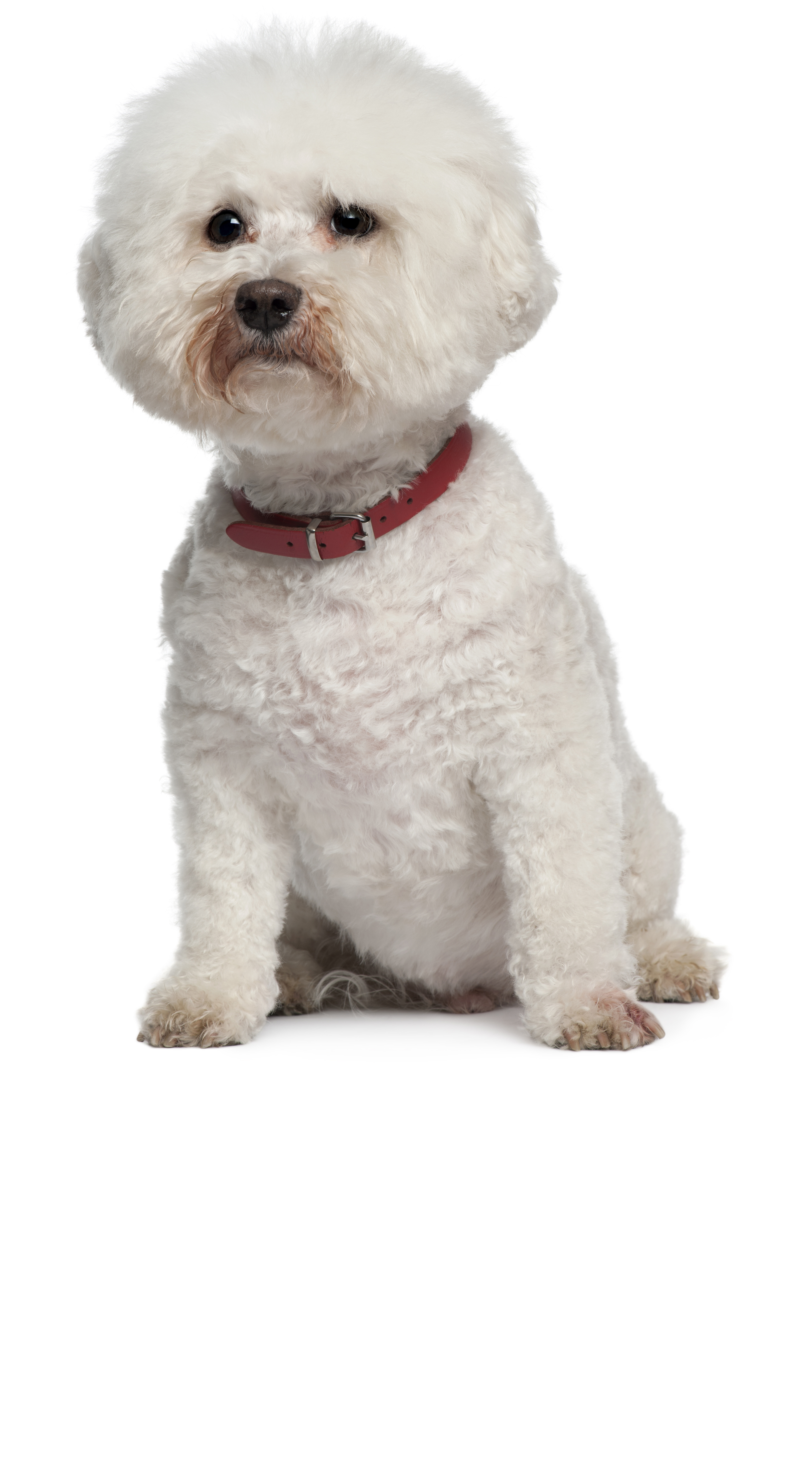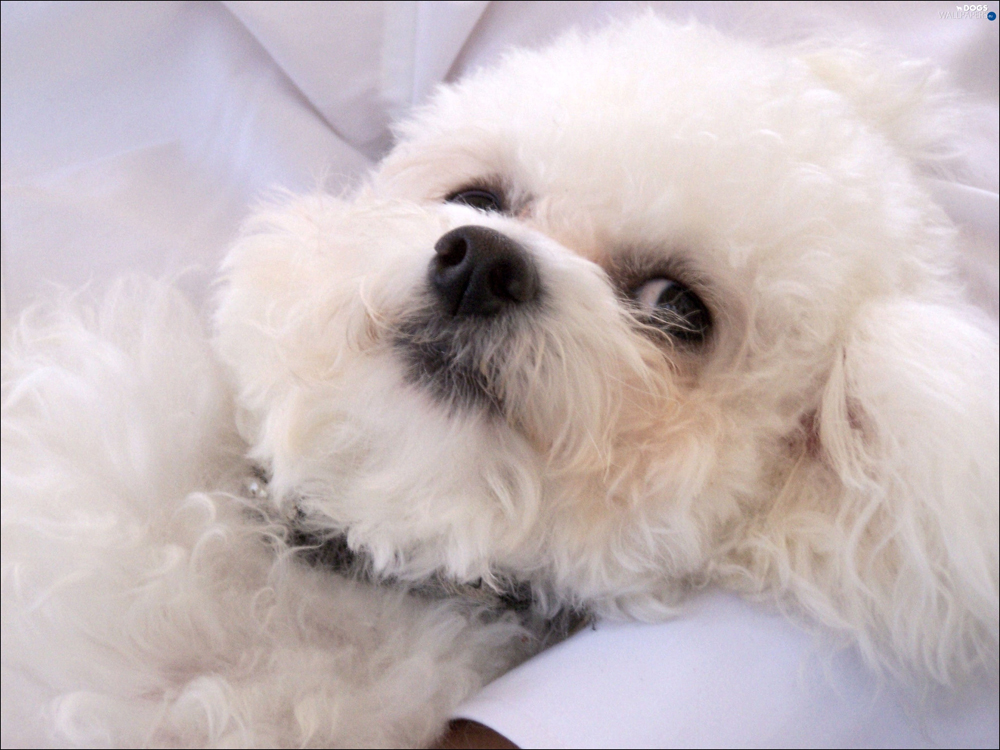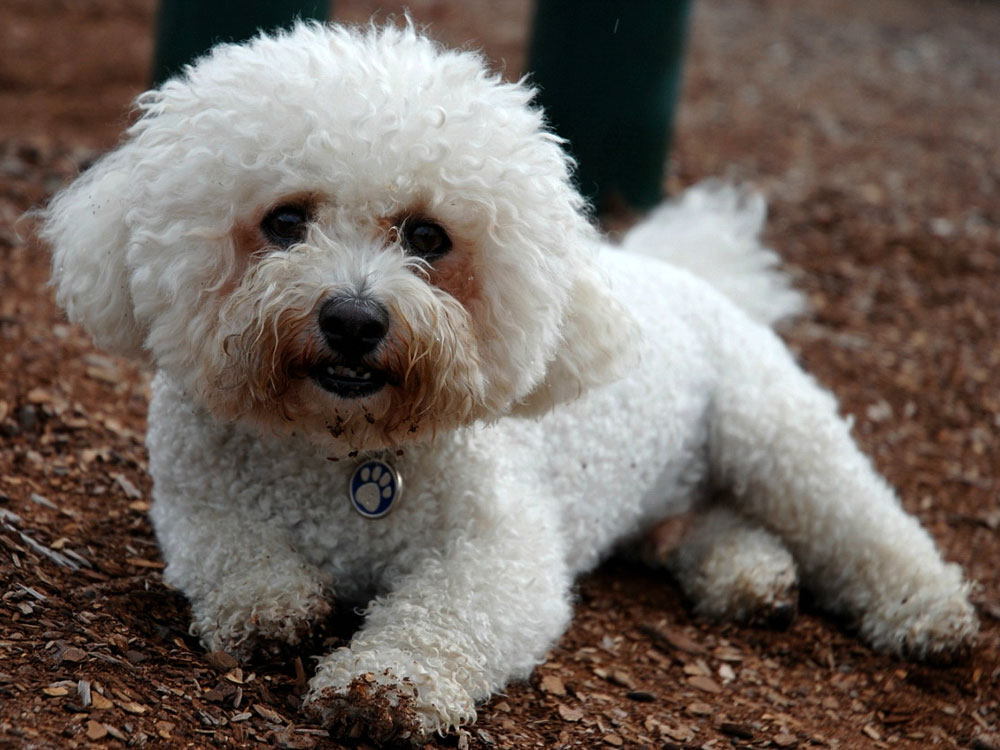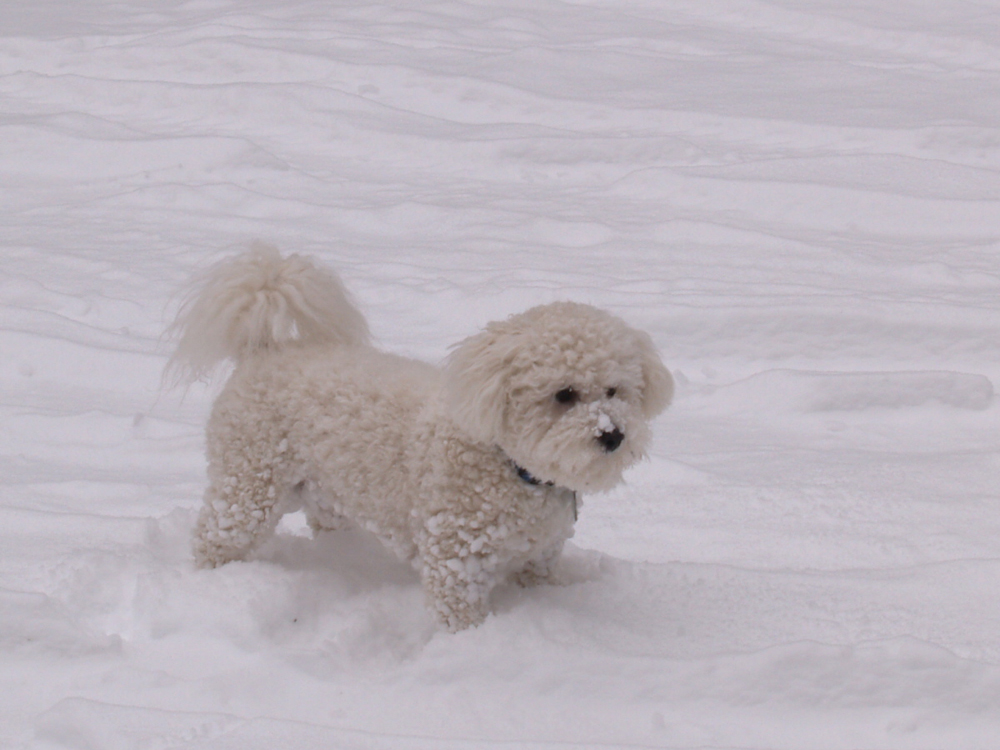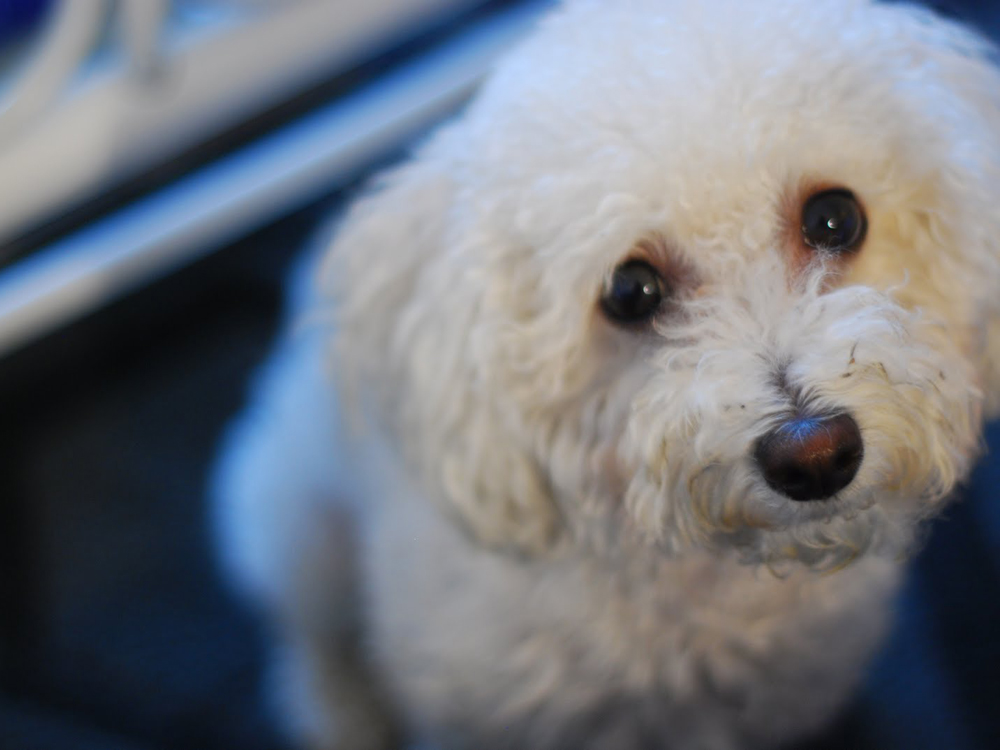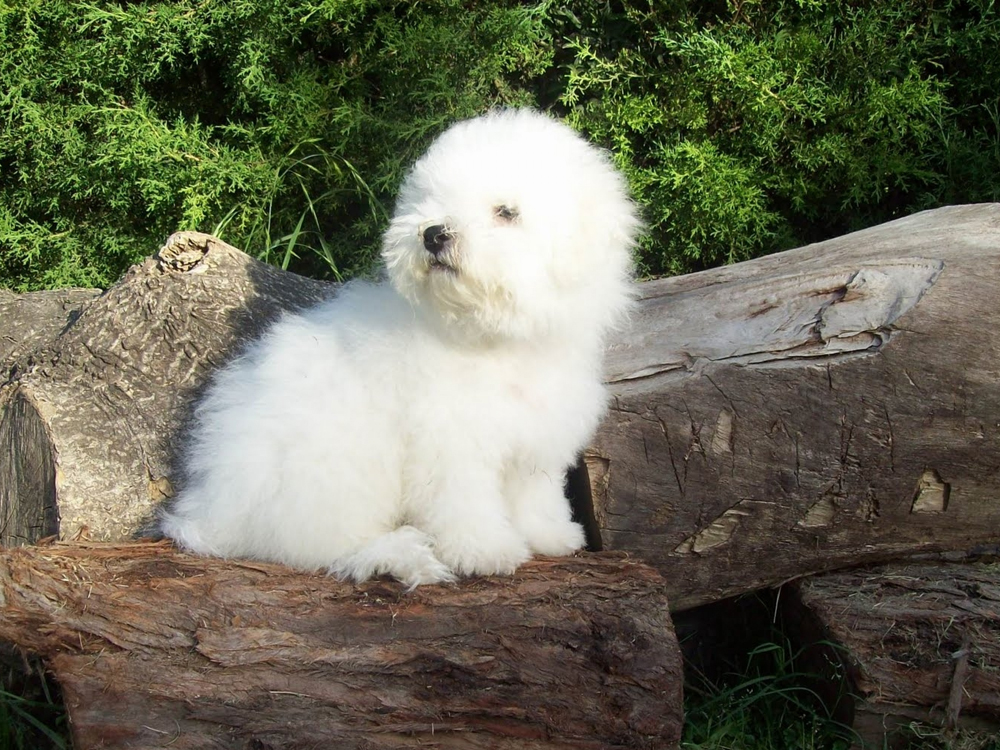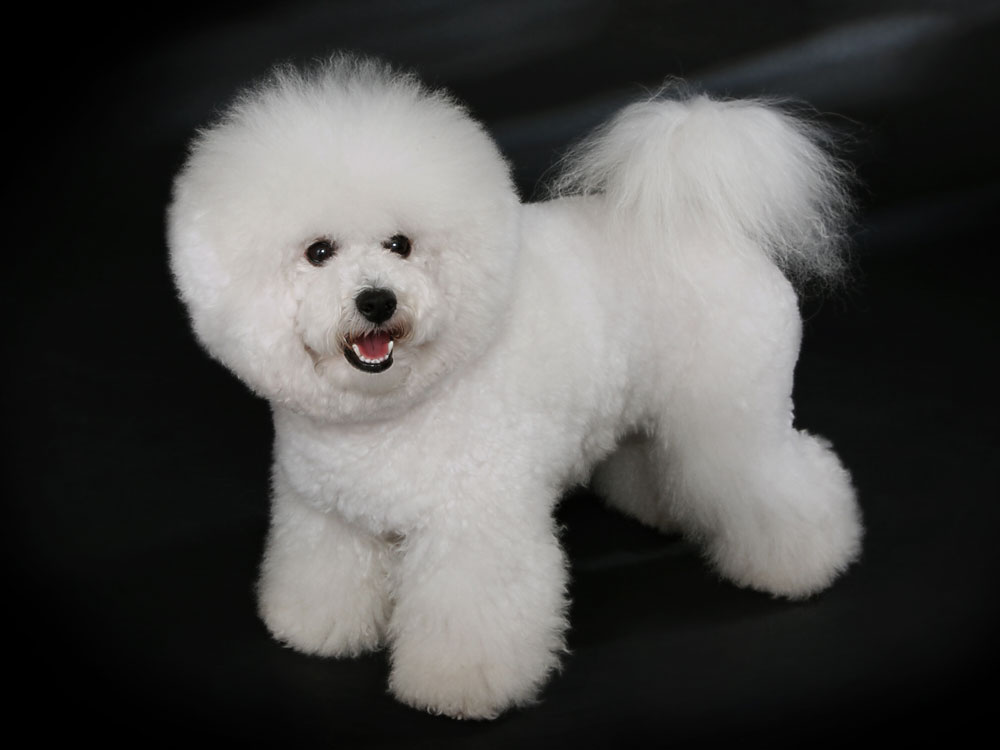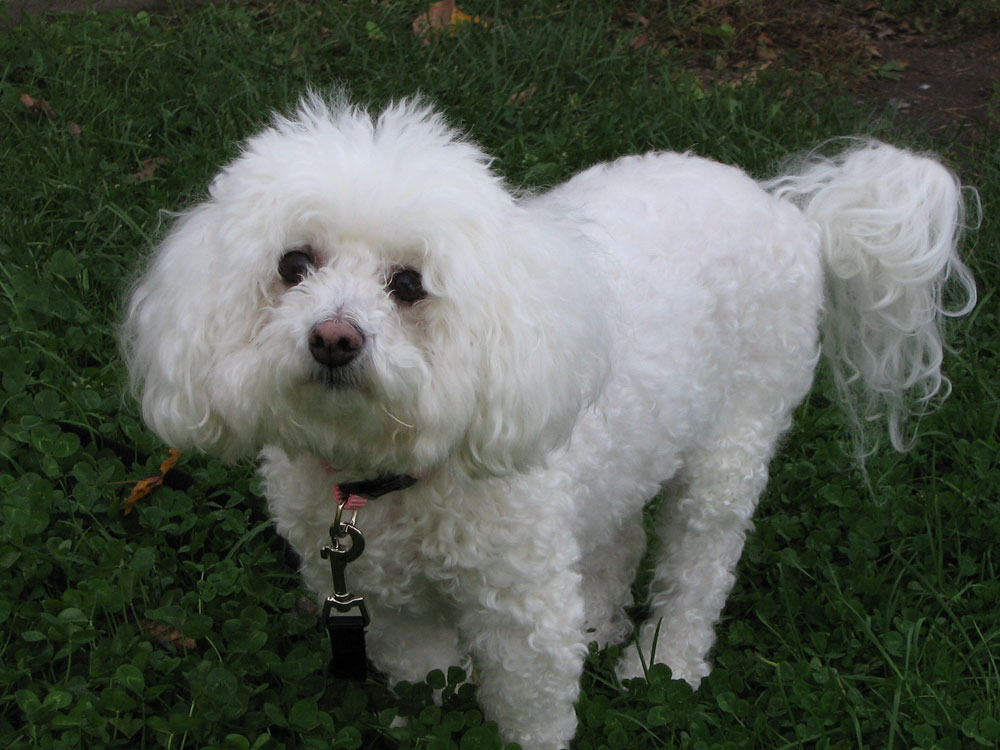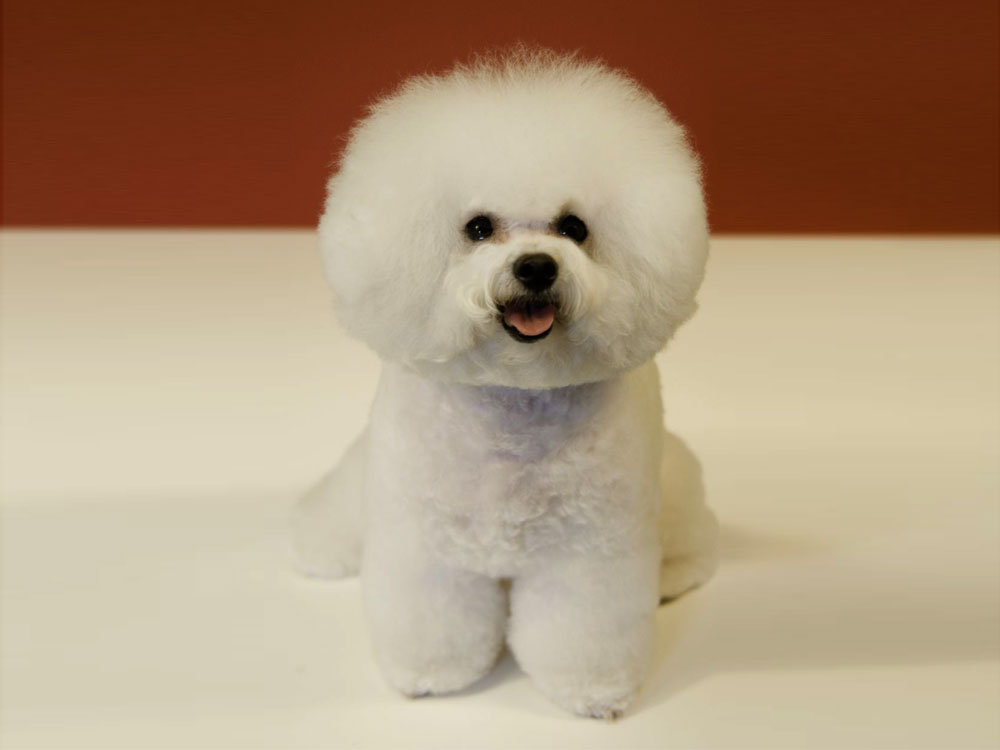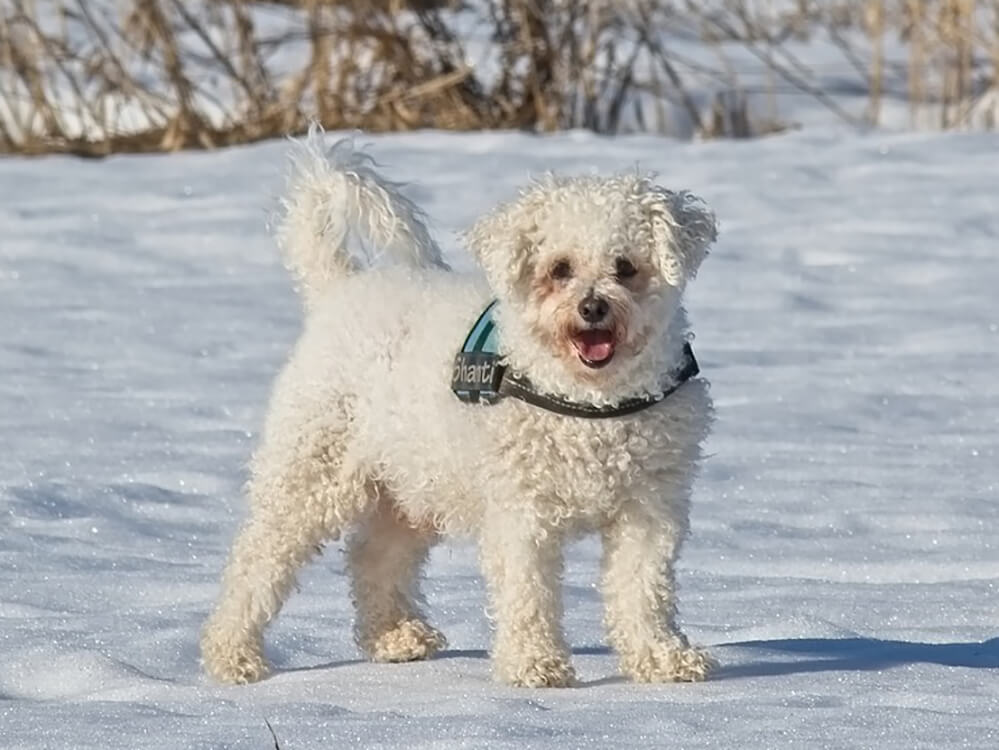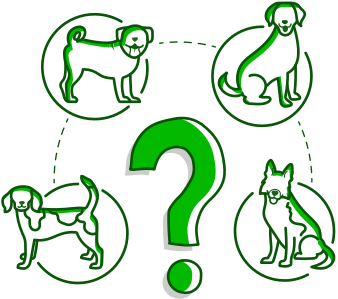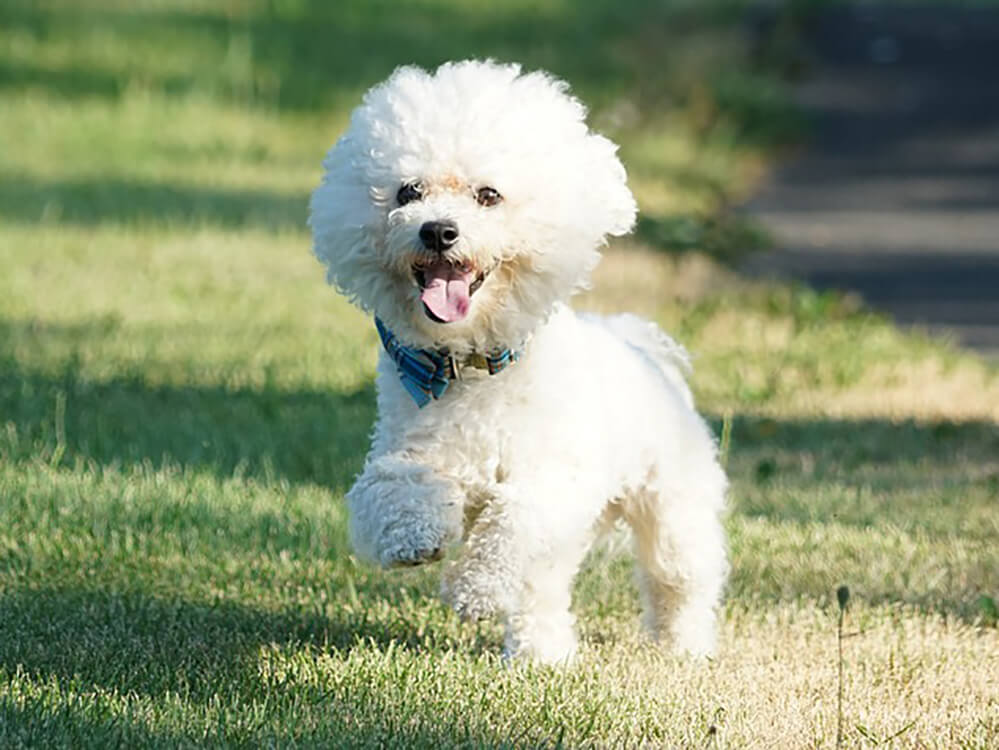
Bichon Frise Breed Pictures
Vital Breed Stats
| Height: | 24 - 29 cm M | 24 - 29 cm F |
| Weight: | 5 - 8 kg M | 5 - 8 kg F |
| Breed Group: | Pastoral Dog Group |
| Life Expectancy: | 13 - 15 years |
| KC Registered: | No |
Breed Characteristics
| Size: |  |
| Grooming: |  |
| Exercise Level: |  |
| Trainability: |  |
| Barking Level: |  |
| Good with Children: |  |
| Good with other pets: |  |
| Affectionate: |  |
| Protective: |  |
| Cost to Keep: |  |
Give a thumbs up if you love the Bichon Frise

0
More About the Breed
History
The history of the Bichon Frise is debatable as there are differing versions. One common belief is that the breed descended from a water dog from the Mediterranean called the Barbet and the name was derived from barbichon, which refers to the pocket-size Barbet. The barbichon group of dogs included the bichon frise, the Bolognaise, the Maltese, the Coton de Tulear, and the Havanese.
According to historians, the bichon breed was used as a sailing dog and when French sailors brought it to France in the fourteenth century. This dog breed easily became a favourite especially with the nobles because of its gentle disposition. It was often seen at the royal courts of King Francis I and King Henry III. However, during the nineteenth century, the bichon lost its appeal with the nobles and became a common dog. It is believed that it almost became extinct, but after World War I, French breeders preserved the breed, giving it two names: bichon and Tenerife. It was later renamed bichon frise, which is a short name for Bichon à poil frisé (bichon with the curly coat). The first bichon frise was listed on the French Kennel Club stud book in 1934.
Appearance
The Bichon Frise is a lively and smart-looking dog. A small, compact, and well-proportioned dog, it weighs 10–20 pounds and stands 23–30 centimetres. Its head is slightly rounded, its neck is long and arched, its jaws are strong with a perfect scissor bite, and its ears hang close to the head, covered with hair. Its eyes are black with a keen and alert expression.
The bichon boasts of an attractive, white, and fluffy double coat with cute curls. Often mistaken for a white poodle, it has a soft and dense undercoat, paired with a course outercoat. The hair stands away from its body that produces a powder-puff look. It should only come in white colour with cream markings only visible until eighteen months.
Grooming
To maintain the beautiful coat of Bichon Frise, it needs to be brushed every single day with a soft slicker brush to avoid mats and tangles. It needs proper trimming by a professional groomer every four to six weeks to keep the appropriate bichon shape.
To fully take care of the physical health of your dogs, you must also make sure that the nails are clipped, ears are free from wax build-up, and skin is checked for spots and parasites. Owners tend to spend all their time on the coat, yet forget to check other grooming aspects.
Temperament
Intelligence
As an intelligent pooch that loves pleasing its owners, the bichon is easy to train. However, house-training is a different story. It takes a lot of patience and consistency to teach it to relieve itself in specific areas.
Breeds do tend to be generalised and have certain characteristics, but heredity, environment, and training can also help build its personality and intelligence.
Nutrition
- Senior and less active: up to 470 calories daily
- Typical adult: up to 320 calories daily
- Physically active/working dog: up to 590 calories daily
Feeding
Health
Exercise
Cost of Ownership
Dog abandonment is a growing concern in the UK and one of the primary reasons is financial difficulty. A lot of people assume that owning a dog is easy or cheap, not realising that it is like raising a human being because of its demanding needs. Before getting a dog, make sure that you do your research and see if you can afford it.
Firstly, buying a well-bred Bichon Frise from a reliable breeder costs around £500 and £700. Daily food and treats are around £40 a month. Routine veterinary visits and preventive care add up to £900 annually. To avoid unforeseen expenses caused by ailments or accidents, always obtain pet insurance, which will be a monthly expense of £20 for basic coverage and £40 for a lifetime policy. Initial costs for necessities and equipment will be £150–£200.
Is a Bichon Frise Right for You?
- The Bichon Frise is an adorable dog with a silly and friendly personality.
- It is a great family dog that loves children and gets along with other animals.
- The breed is intelligent, but it may be challenging to house-train.
- The Bichon is perfect for first-time owners as long as they can deal with its demanding grooming needs.
- It generally burns off its energy as it is active at home, but it still requires at least thirty minutes of exercise.
